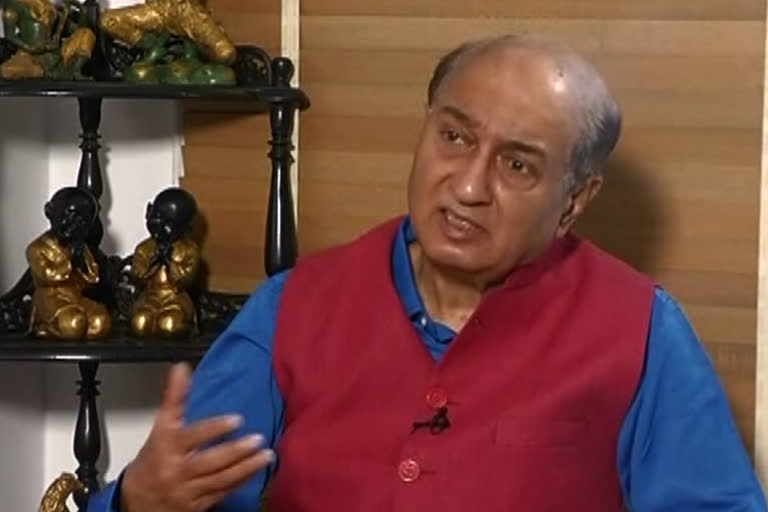New Delhi: The Sri Lankan government on Tuesday confirmed that it will develop the West Container Terminal (WCT) at the Colombo port with India and Japan.
This move by the island nation can be viewed as one of the strategies to keep away China's regional influence and strengthened the traditional balance with India and for that matter Japan.
The government last month scrapped the partially built Eastern Container Terminal (ECT) port deal with India and Japan, located next to a $500-million Chinese-run container jetty within the capital Colombo's rambling port, amid protests by trade unions and resistance to foreign involvement in Sri Lankan projects. Such a move by Sri Lanka came as a setback to India and its plans to develop strategic infrastructure projects in other nations shortly.
Now it remains to be seen whether or not India will accept the proposal by the Sri Lankan government and how New Delhi and Tokyo will divide their majority stake in the WCT port.
Gopalaswami Parthasarathy former Spokesman, Ministry of External Affairs, and Information Adviser in the Prime Minister’s Office with Prime Minister Rajiv Gandhi (1985-90) opine that the decision by the Sri Lankan government to clear Indian investment at WCT Colombo port is fair enough because India should have a presence in the Colombo port and cannot allow Chinese to be there. The Chinese play on the trade unions of Sri Lanka.
“The important matter for India is to have a presence in Colombo but there is a more serious issue that we should keep looking at. Sri Lankans were giving the Chinese some projects in Northern Sri Lanka which is too close to India’s coast, in the Tamil areas up north. India cannot match China in terms of money. The whole idea of ‘Quad’ is to bring in Japanese and American money to counter Chinese aggression in the Indo-Pacific region”, Parthasarathy told ETV Bharat in an interview.
He said that Chinese influence will be there but one could not have it in there (port) exclusively. “Chinese already have its presence in Hambantota port, which has been a source of worry. Sri Lankans walked into a debt trap, they could not use the port and gave it to China. But India is seeking serious safeguards from Sri Lanka about military vessels. So it is expected that Sri Lanka will be more careful about military vessels coming in the WCT port”, he added.
“Colombo has been the transit point for shipments to India for several places. Colombo makes it easy because countries go around Sri Lanka and then they head for the Pacific. It has a huge use as a transit point. India’s Southern ports in the far deep are not much well developed on the West coast. So for any shipping needs, the West Container Terminal port is the convenient route. Anything coming to the West, whether from oil to other goods from Europe, goes through to this route. So it has been a transit point for Indian trade for a long time”, he explained.
According to reports, Sri Lankan government Spokesperson Keheliya Rambukwella on Tuesday told the media in Colombo that the discussions to develop WCT will be only with India and Japan.
He said that the Sri Lankan cabinet on Monday decided to allow India and Japan to have an 85 per cent stake in the West Container Terminal -- the same terms China was granted when building the CICT (Colombo International Container Terminal).
Also read: 'Pak offers $15M credit line to Sri Lanka for defence cooperation'
There has been no response from India’s Ministry of External Affairs as well as from the Japanese government on the matter yet.
Earlier, reacting to Sri Lanka’s decision to cancel the port deal with Indian and Japan and announcement to operate the ECT as a wholly-owned container terminal of the Sri Lanka Ports Authority, the spokesperson of the Ministry of External Affairs maintaining a neutral approach had said, “The governments of India, Sri Lanka, and Japan had signed a memorandum of cooperation in May 2019 to develop and operate the East Container Terminal of Colombo port under a trilateral framework. We sincerely believe that the development of infrastructure in Sri Lanka in areas such as ports and energy, with foreign investment from India and Japan, will be a mutually beneficial proposition”.
“Our High Commissioner in Colombo is in discussion with the Government of Sri Lanka including on the importance of adhering to international commitments”, the spokesperson had stated.
This is not the first time that India has been sidelined from a foreign project but a few months ago, Iran had scraped a project with India to develop the railway link from Chabahar to Zahedan, despite the agreement being signed during Prime Minister Narendra Modi's visit to Tehran in 2016.
Article by senior correspondent, Chandrakala Choudhury



